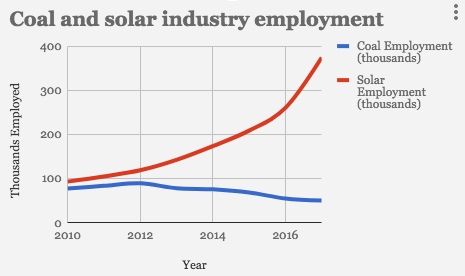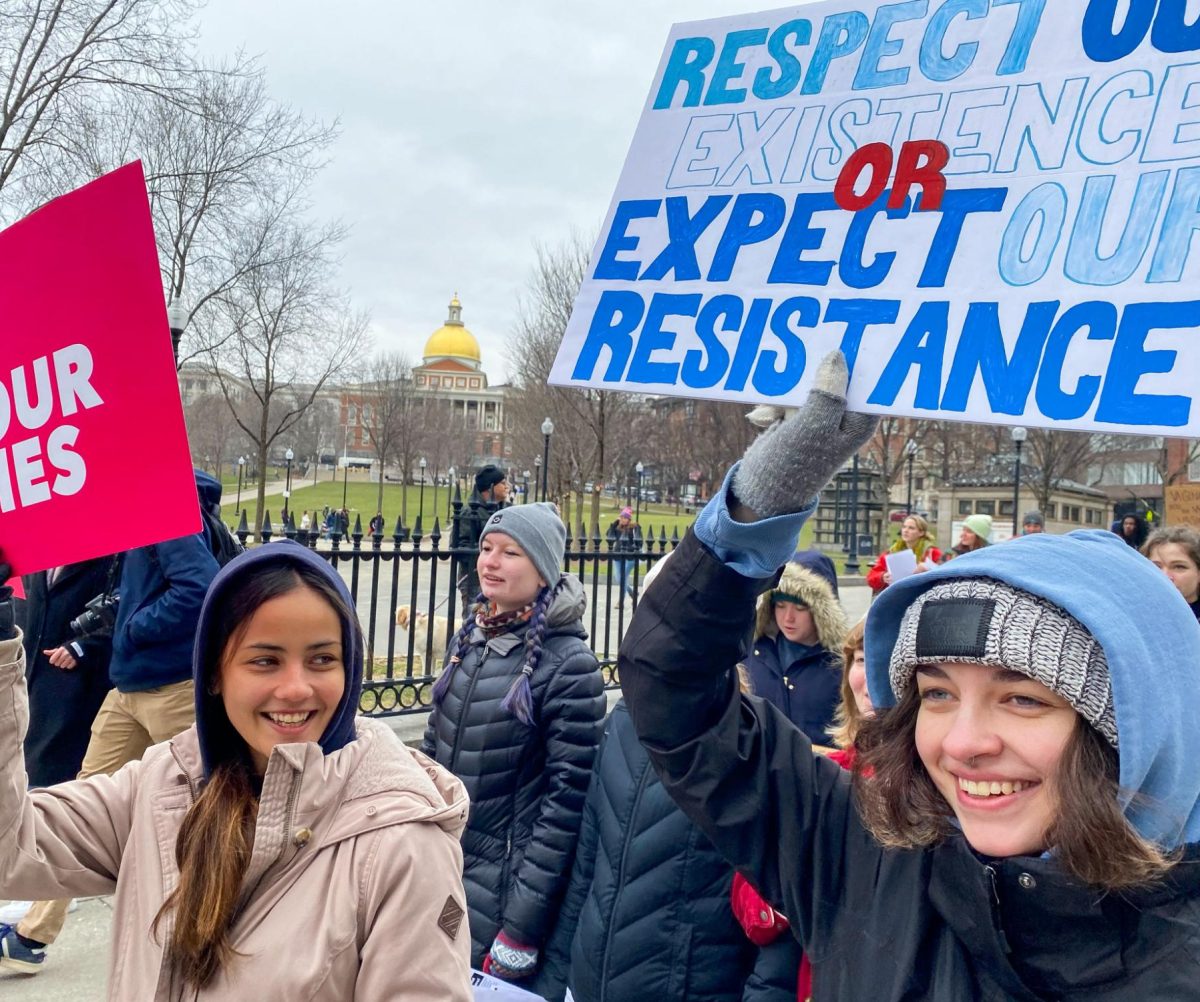Last week the Trump administration announced it will suggest reduced government funding toward all renewable energy sources by an unprecedented 72 percent.
This action is a continuation of Trump’s rhetoric surrounding reunables, and follows through with his campaign promise to end “the war on coal,” with the goal of increasing jobs throughout the coal industry.
“It’s ironic [that] he says jobs are a priority of his, when he’ll be removing funding for some of the most important new jobs in the country,” said Suffolk University junior and environmental science major Teresa Feijoo.
Energy production has been an imperfect process since the first water wheels of ancient Egypt, or Thomas Edison’s original design of a coal-fired power plant for New York City.
Numerous examples of these imperfections have existed throughout all of our most popular energy sources. Dams with water turbines have long been criticized for flooding risks and damage to drinking water supplies. Wind turbines have killed birds and bats, as well as increased local noise pollution. Solar power faces scrutiny for its inconsistency, and expensive costs to build.
Despite these imperfections, some sources have been the focus of increased innovation and resulting growth, while others are falling behind in relevancy.
Tesla, Inc.’s new household battery has turned off-the-grid lifestyles into realities for those who have wished to live off of the nation’s power grid. Hundreds of thousands of electric cars hitting the roads has reduced the demand for petroleum. Increased mining automation has removed much of the physical labor associated with coal extraction.
The United States uses every type of energy generation in varying quantities, and employs tens of thousands in the areas of energy research, fuel extraction, power grid maintenance and any other sector along the supply path of electricity.
“[Energy] sectors today employ approximately 6.4 million Americans. These sectors increased in 2016 by just under five percent, adding over 300,000 net new jobs, roughly 14 percent of all those created in the country,” reported the Department of Energy.
Not all energy sectors have grown equally, as the greatest decline was seen in the coal industry over the past 10 years. Many Americans who have been employed by or have families who have been employed by the coal industry have felt forgotten, or worse, actively disenfranchised. This growing mindset has led to an increase in political motivations to speak on protecting coal, as many voters will seek out a candidate who they feel will protect their dying livelihood.
Trump’s decision to reduce government funding for renewables ends the long history of continuous job growth and innovation for energy production. His plan also risks damaging the livelihoods of hundreds of thousands who are currently being employed specifically by the solar, biofuel and wind energy industries.
The proposal would kill research in bioenergy technologies by 82 percent, advanced manufacturing by 75 percent, solar energy technology by 78 percent and fuel efficient vehicles by 82 percent.
“The decision effectively will cause the loss of roughly 23,000 American jobs this year, including many in manufacturing, and it will result in the delay or cancellation of billions of dollars in solar investments,” said the Solar Energy Industries Association. “These [tariffs] will create a crisis in a part of our economy that has been thriving, which will ultimately cost tens of thousands of hard-working, blue-collar Americans their jobs.”
Feijoo remains optimistic on her thoughts of her future career.
“Even though it’s grim right now, it’s giving me hope that there’s backlash to this decision of his. Change will come, he is just a barrier in the way. Him prolonging this will only give us more to clean up when he’s gone.”















